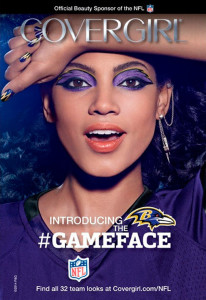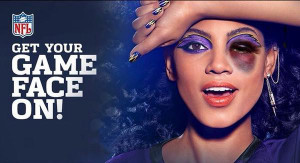Lance Armstrong, Ray Rice, Adrian Peterson, Tiger Woods, Danny Heatly… Yes, I’m talking about sports scandal and Advertising Vampires.
According to Psychology Today, an Advertising Vampire is a celebrity who overshadows a brand endorsement with an ethical dilemma (Dholakia, 2015). Much like the Skittles issue we read about in the New York Times, sometimes an issue or a person becomes bigger than the brand and this can create a PR nightmare.
Each of the above mentioned sports figures have at one point (or still) had their endorsement contracts revoked due to ethical and/or legal issues affecting the reputation of their signed brand. CNBC reported in 2012 that Lance Armstrong lost 8 sponsors in one day and Nike, who had supported Armstrong since 1996, was the first to pull their deal.
In a statement about Armstrong, Okley said:
“Oakley does not approve in any way the use of illegal substances for enhancing performance in sports. Our policy with our athletes is to support them until proven guilty by the highest governing body of sport or court of law. We are reviewing the extensive report from the USADA, as well as our relationship with Lance, and will await final decision-making by the International Cycling Union” (Rotunno, 2012).
It didn’t take long but shortly after, Oakley followed Nike, Budweiser and other big names in cutting ties with the cyclist (The Guardian, 2012).
Robin Evans, an advertising expert, says celebrity endorsements gone wrong can “suck the life-blood of the product dry” (Dholakia, 2015). Essentially, the audience remembers the scandal and not the product (Dholakia, 2015).
This vampire effect is a dangerous one but in today’s world of quick-fingered tweeters, it can go a step further. Scandal and public shaming can go hand in hand, making things go from bad to worse in a matter of minutes.
The negative impact from indignity is said to affect the brand and the effectiveness of any ad that brand appears in (Dholakia, 2015).
In the case above, things got complicated. The NFL was the target of public boycott due to football player Ray Rice’s violent actions, yet singer Alicia keys was innocently brought into the mix simply because she had previously posed for a Covergirl ad, which sponsors the NFL. The ad was posted all over social media and soon the lines were crossed as Covergirl began to get hate mail and pressure to drop their connection to the NFL.
Wow!
So, what can marketers do to reduce the possibility of hooking up with a vampire? Dr. Utpal Dholakia, a Professor at Rice University and author of The Science Behind Behavior, says that there are 3 things marketers can do:
- Ensure your brand matches the qualities of the celebrity;
- Avoid celebrities with larger-than-life personalities; and
- Build long term relationships (Dholakia, 2015).
Ok, that’s all fine and nice but, I would argue that, in some cases, I don’t really think there is anything you can do to prevent these things from happening. It’s like the Powerball, some things are just unpredictable.
But, I do believe in one thing – strategy. And as usual, your best defense is a good offense. If you sign a celebrity, just make sure you have a really good crisis communication management plan…just in case.
References
Dholakia, U. (3 Nov, 2015) Can a Celebrity Endorsement Hurt the Brand? In Psychology Today, retrieved from https://www.psychologytoday.com/blog/the-science-behind-behavior/201511/can-celebrity-endorsement-hurt-the-brand
The Guardian, (22 Oct 2012), Lance Armstrong loses Oakley sunglasses sponsorship, Press Association, Retrieved from http://www.theguardian.com/sport/2012/oct/22/lance-armstrong-oakley-sunglasses
Rotunno, T., (18 Oct, 2012) Armstrong Loses Eight Sponsors in a Day, CNBC, Retrieved from http://www.cnbc.com/id/49462583



6 Responses to Advertising Vampires